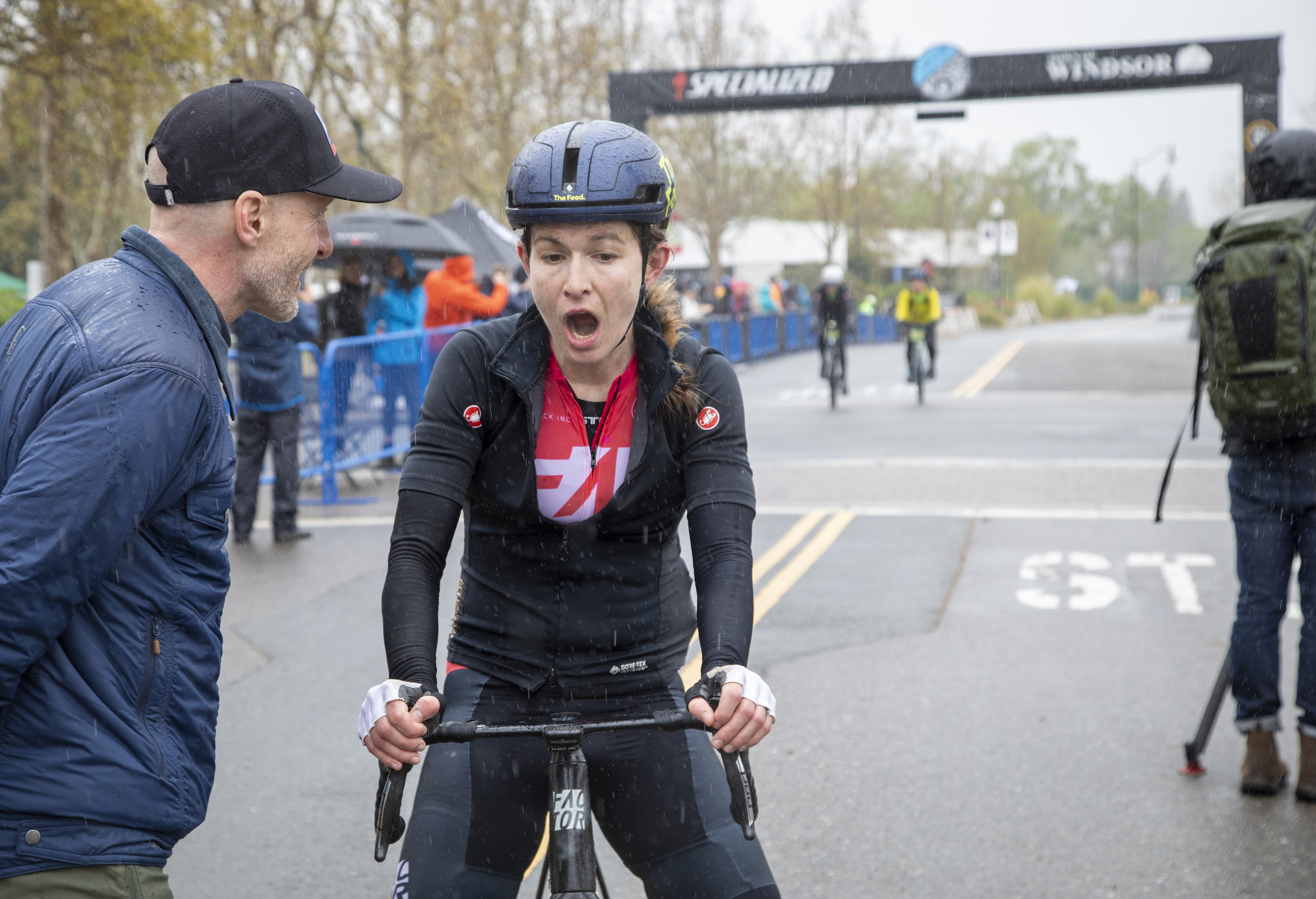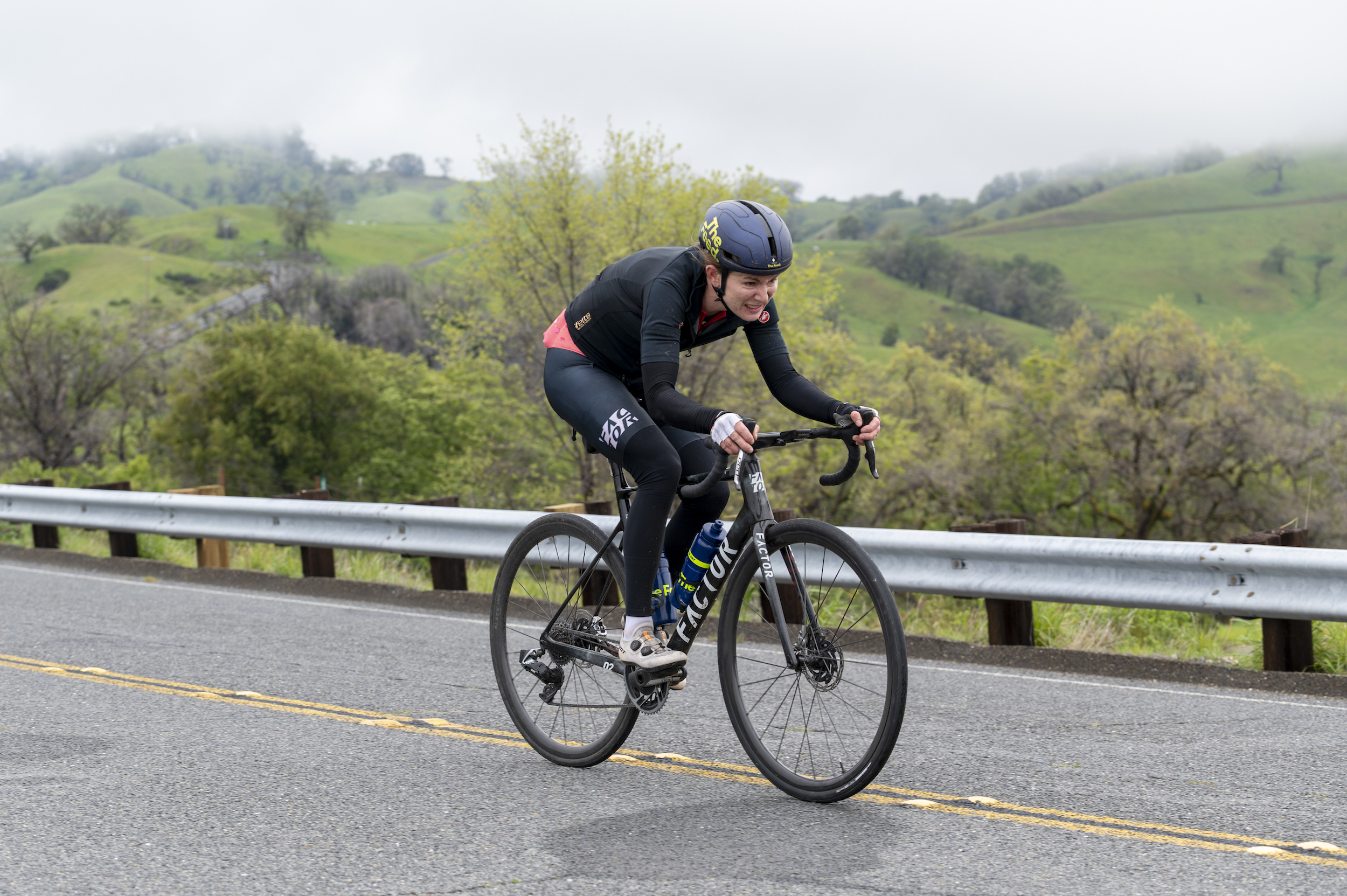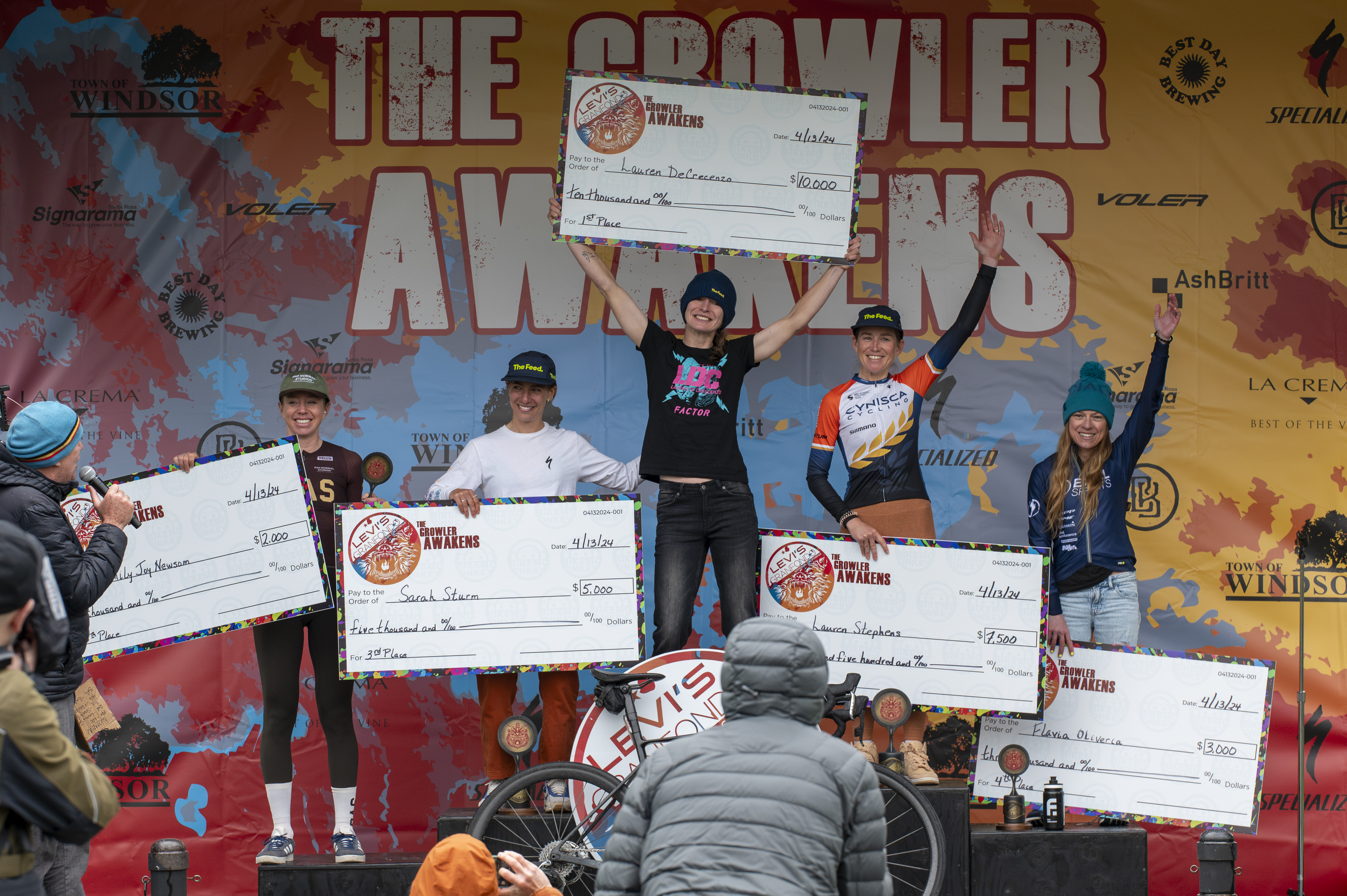Road prep and adapting to new rules as Life Time Grand Prix begins at Fuego XL mountain bike event
Lauren De Crescenzo uses The Growler for confidence boost ride ahead of prestigious off-road series

Lauren De Crescenzo here, otherwise known as “LDC” for the rather challenging pronunciation of my Italian last name. I’m the newest contributor to Cyclingnews, writing from the behind-the-scenes perspective about the inner workings of professional gravel cycling and beyond.
I began my professional cycling career on the road and like to say, “I have a roadie heart, full of gravel”. So, when the opportunity arose to race in The Growler at Levi's GranFondo, I couldn't resist. The timing aligned perfectly with the Sea Otter Classic mountain bike race, Fuego XL, the first stop of the Life Time Grand Prix, a few hours away in Monterey, California. The 100% road Growler seemed the perfect opportunity for a mini-confidence boost before presenting myself to the mountain bike gods.
The Growler’s hefty 138-mile course, with 14,000 feet of climbing, meandered through Sonoma County’s wine country’s world-class, breathtaking (no pun intended) roads. As race organizer, former Tour de France pro Levi Leipheimer will attest: “The Growler rivals some of the toughest stages of the world’s most difficult road races”.
I was a combination of exhausted, relieved, and thrilled when I rolled across the finish line in downtown Windsor to win the women’s division.
Four of the top five women will be part of the LTGP this year (more on that below). On the men’s side, Keegan Swenson, two-time champ of the LTGP, out-sprinted Lawrence Naesen for the victory.
It encapsulated my favorite aspects of road riding: relentless climbs coupled with high-speed somewhat technical descents. The course promised to push my limits, and bike-handling skills all while putting my roadie heart to the test. A substantial $55,000 prize purse split equally among the top 5 men and women for The Growler racers added to the stakes and motivation.
Ian Boswell, who finished fourth in the men's division at The Growler, put it well when he said, “Levi’s GranFondo found the spirit of gravel.” Who knows, maybe the Growler has started to revive the “spirit of the road” in the US.
Grand Prix and future of gravel
Reflecting on Levi’s, I can't help but contrast this experience with my recent foray into mountain biking, particularly with the upcoming Fuego XL at Sea Otter Classic.
Transitioning from the road to the trails presents a stark contrast in terrain and technique. I'm excited to continue improving on the mountain bike and my ability on the gravel bike as I prepare to reenter the Life Time Grand Prix series.
In addition to my racing, I am actively engaged in shaping the future of gravel through my involvement in an athlete advisory group collaborating with Life Time.
Our focus is refining the start protocols and drafting rules for the Life Time series. These discussions are ongoing and detail-oriented, touching on crucial aspects such as penalties, enforcement, and clear communication of rules - especially ensuring that men understand and adhere to the same guidelines prohibiting drafting off female racers.
I have advocated for increased intervals between start times to optimize race dynamics. For instance, proposing that pro-men begin at 7 a.m., followed by pro-women at 8 a.m., and then other racers at 9 a.m.
Ideally, I envision a future where women's races start on separate days, mirroring the successful approach used at the UCI World Championships in Italy in 2022, where I represented the US team. The separation of race days eliminated any potential interference, providing a fair and focused platform for showcasing our ability.
Mass starts
In true gran fondo fashion, all riders commenced at 8 a.m. in downtown Windsor creating a feel-good palpable energy. As feel-good as the energy was, combined mass starts often alter the dynamics of women's racing, particularly in long events.
Men's explosive power is advantageous in the early stages of racing, while women typically have better endurance, and we prefer to pass our male counterparts later in the race.
On the mass starts, especially in gravel, I think a change is crucial if we want to establish true women's races, rather than relying on chance factors such as which male group you're caught up with, pro or amateur. Whether a pro male is recovering from a mechanical issue and aiding your progress, or the sometimes unpredictable tactics seen when substantial prize money is at stake, come into play.
Gravel races and events with significant purses necessitate separate starts to ensure fairness. The current setup often feels arbitrary, relying too heavily on external factors like male assistance or motives.
For women to compete on a level playing field, we require our own starting line. This is essential to guarantee that the strongest racer wins.
Back to road roots at The Growler

Contrary to the saying, “It never rains in California,” it rained nearly all day, making the event more epic than originally planned. After careful consideration, I opted for a Castelli Gabba—striking the right balance of rain protection without overheating.
During the first flat and fast 30 miles, with the front group averaging 23 mph on the wet roads, Sarah Sturm and I found ourselves at or near the front. As we rode amidst the peloton, we exchanged concerns about the inherent dangers behind us, commenting on how relieved we are about Life Time committing to separate starts for men and women in every race of the 2024 Life Time Grand Prix series.
The first big climb of the race, King Ridge, came at mile 30 with nearly 2,000 feet of elevation gain over seven miles. After a steep 11% gradient, 1.24-mile pitch, I found myself in a group with Flavia Oliviera, LTGP riders Sturm and Lauren Stephens, as well as Lauren's husband Mat Stephens.
The subsequent climb “Skaggs” came in two parts- a climb, quick descent, followed by a second and steeper climb. After downing a much-needed caffeine gel, I attacked a steep section in the second part of the climb. At this point, the field had blown up and drafting was less beneficial. I created a gap and went solo for the next 80 miles.
The third and final ascent, “Geysers,” was a true test of endurance, stretching over 15 miles and featuring more than 2,000 feet of climbing. As the route ventured onto less-maintained roads, my gravel skills came into play, navigating tricky terrain that included a memorable “puddle crossing.” The decision to go with 28mm Maxxis High Road tubeless tires proved instrumental, particularly on the wet and technical descents where the tread pattern provided reliable grip and control.
The pavement was in fact notably rough and narrow in many sections. This was far from your standard road race; it demanded adaptability, and some technical prowess. The blend of rugged terrain, and even some rough ascents where there was really only one good line, coupled with technical descents, made this race an unforgettable and distinctly gravel-like experience.
And just when I thought the race was over, it was not over. Following the Geyser's technical descent, I still had 20 miles of rolling terrain through beautiful vineyards, which at least helped numb the pain in my legs. I focused on staying aero and keeping my effort controlled.
A huge thank you to Levi's GranFondo team for an exceptional course, generous prize purse, and well-executed event. I could tell it was put on by a team that had been racers themselves. Lauren Stephens joined me on the podium in second, Sturm in third, Oliveira in fourth and another LTGP rider Emily Newsom in fifth.
Ultimately, what drives me is a love for riding bikes—whether on gravel, road, or mountain trails. Each discipline offers its own set of challenges, pushing me to continually evolve by .1% every day.
As I prepare to embark on the Life Time Grand Prix series once again, I carry with me this excitement.

Get The Leadout Newsletter
The latest race content, interviews, features, reviews and expert buying guides, direct to your inbox!
Lauren De Crescenzo is an accomplished gravel racer, having gained fame as the 2021 Unbound Gravel 200 champion and racking up wins at won The MidSouth (three times), The Rad Dirt Fest and podiums last year at Crusher in the Tushar and Big Sugar Gravel. In 2016, she suffered a nearly fatal, severe traumatic brain injury (TBI) in a professional road race. While the bike almost took her live, she says the bike saved her life as a rehabilitation tool in the following years and she found a new love– gravel and off-road racing. She now wants to be a role model of tenacity, grit, and hard work to promote the vital message of TBI awareness, positively impacting the lives of those affected by TBIs.